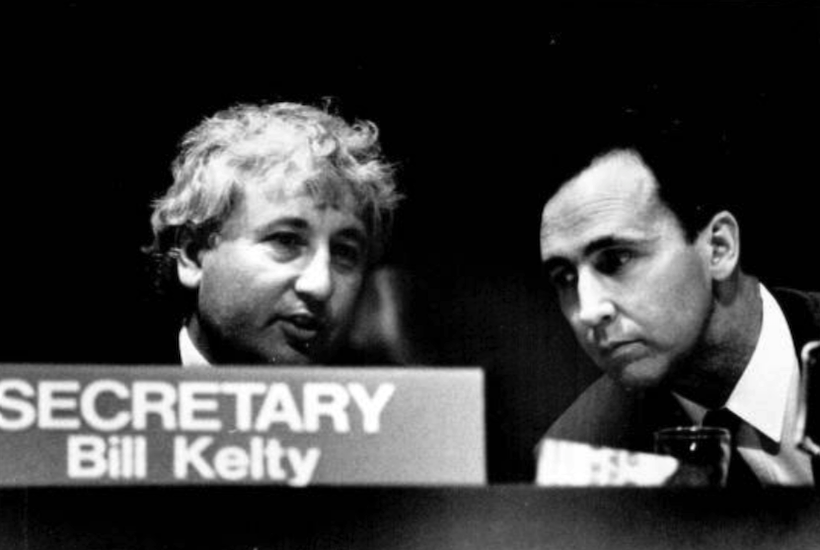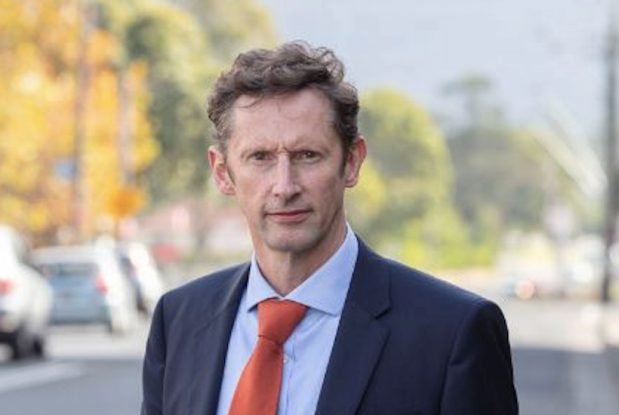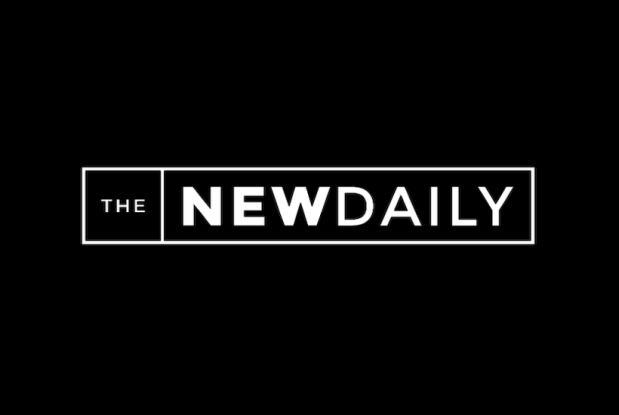Never has there been a more appropriate time to fix Australia’s antiquated superannuation system.
The COVID-19 crisis has thrown the spotlight on many of our institutions, but none more so than our super funds.
They opposed the early release of workers’ money when they’ve had early access to our money for years.
Super is simply not doing what it was designed to do.
Paul Keating’s love child with the union movement sees 70 per cent of Australians continuing to rely on some form of pension. And that figure won’t change between now and 2050.
The system is clearly being manipulated by vested interests, and the layers of largesse are simply staggering.
Take super fund boards – they are big, bloated and expensive.
Cbus and First State Super each have 15 directors. AustralianSuper, HESTA and NGS Super are all just one behind 14.
Meanwhile, Coles and QBE have almost half — eight directors — while CommBank, ANZ and Woolworths have just nine.
Why is it that ‘not-for-profit’ super funds require almost twice as many directors as the ASX’s largest and most complex companies? Simply because it means more snouts in the super trough.
Many of these unions are paid hundreds of thousands of dollars of your money for a part-time job for their staff.
It’s yet another example of how super is working for vested interests rather than the national interest.
Unfortunately, however, the problems don’t stop there. Super fund boards are not just big and expensive, but ineffective.
This is because they’re stagnant.
Any skilled director will tell you that board renewal is a constant focus. New directors bring new ideas, new skills and more objectivity.
As a result, APRA believes the tenure of super fund directors should not exceed 12 years. Any longer and their ability to exercise independent judgment is affected, the prudential regulator says.
But why let tenure suggestions get in the way of a substantial salary? The industry is riddled with people who have as much regard for maximum tenures as they do for the workers they represent.
Leading the incumbents is Neville Pozzi, who has been a director of REI Super’s Trustee company for 27 years.
He is closely followed by Paul Conway. He has been on the board of the Meat Industry Employees’ Super Fund for 25 years, despite the fund’s own ‘Board Renewal Policy’ suggesting a maximum of 12 years.
In third place, also of REI Super fame, is Ian Armstrong at 24 years.
Fourth place goes to Michael O’Conner, 22 years on the board of First Super.
Sitting on a super board should be renamed ‘The Gravy Train Club’. There are quite literally dozens of others who’ve belonged to this club for between 12 and 20 years.
But if you think these are extraordinary, you should see the record holders. This time last year, Grahame Willis and Joe De Bruyn had been directors of AustralianSuper and REST (respectively) for almost 32 years each!
This is even more staggering in the context of Telstra’s latest appointment to the board of their newest and youngest member, at 32 years of age Bridget Loudon was born around the same time Willis and De Bruyn took up their seats.
So where is APRA? Why is there so little scrutiny on the governance of super funds, even after a Royal Commission found them to be lacking in so many ways?
Why have the industry funds been allowed to pour $13 million into unions this year alone; a figure that will balloon to $31 million by the end of this decade.
This represents a greater than 200 per cent increase on today’s transfers to unions.
When I exposed these rorts earlier this year in my book, Bad Egg: How To Fix Super, I was attacked by the Big Super collective of unions, industry super and Labor.
Labor’s spokesman for superannuation Stephen Jones said in June: “This stuff (claims about union payments) isn’t only false and old, it reeks of political agenda …”
The fact is Labor would say anything to help “Big Super”. Probably because super is the lifeline that keeps the unions afloat as union membership flatlines at 10 per cent. So many preselections depend on powerful unions.
Mr Jones continues to use falsified numbers which the Treasury said are wrong because he wants to scare people out of using their own money in a recession. Treasury said in April that industry super’s estimates “are significantly higher than the figures produced by the ASIC calculator.”
It is therefore unremarkable that Jones would pretend $31 million isn’t real money!
OpenDirector provides data on boards and executives for major companies, superannuation funds and government entities.
Their research for the end of financial year 2019 clearly shows that super funds are being used as vehicles to transfer millions of dollars from hard-working members to the trade union movement.
It’s no surprise that at the top of the list of unions with their hands out to the funds is Cbus. The Cbus fund has a board controlled by the Master Builders Association and the CFMMEU. Research for my book based on aggregated AEC data revealed Cbus paid the CFMMEU $14.5 million over the past few years.
These payments are not disclosed to members in annual reports or websites. They should be.
And why should the funds be using workers’ savings to spend on lavish advertising campaigns featuring Industry Super Australia Chairman, Greg Combet, to justify their existence?
I have exchanged a series of letters with APRA about this. APRA says the super funds without shareholder capital can advertise and make political donations. This is wrong.
There’s no doubt it’s a powerful industry, but more must be done to ensure super works for the workers.[Text Wrapping Break]
A good first step would be taking super from the dinosaurs and handing it back to the workers who own it.
That’s what our early release scheme does. It helps people to help themselves with their own money.
Australian Bureau of Statistics data tells us that almost 60 per cent of people are using this money to pay down debts, pay outstanding bills and put in mortgage offsets.
Letting people improve their personal balance sheet is a good step.
But there’s much more to do.
Andrew Bragg is a Liberal Senator from New South Wales. His book, Bad Egg: How to Fix Super, is available from Connor Court.
Got something to add? Join the discussion and comment below.
Get 10 issues for just $10
Subscribe to The Spectator Australia today for the next 10 magazine issues, plus full online access, for just $10.


























Comments
Don't miss out
Join the conversation with other Spectator Australia readers. Subscribe to leave a comment.
SUBSCRIBEAlready a subscriber? Log in